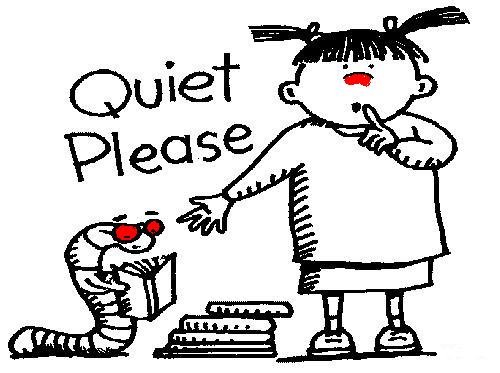 Why do people spell Xmas instead of Christmas?
Why do people spell Xmas instead of Christmas? There are more reasons why people write "Xmas" instead of "Christmas". One reason is to be found in history.
In the Greek alphabet the letter c (Chi) is the first letter in the Greek word for "Christ". During the persecution of Christians the X was used a secret signs among the Christians.
In old publications "Xmas" is written instead of "Christmas".
"Christmas" means "the Mass of Christ". This is "Cristes maesse" in Old English.
The following words are used as well: (cnity=Christianity; cn=Christian)
Another reason is a practical one. "Xmas" is written faster than "Christmas". One can think that it is an invention of the advertising industry. "Xmas" is very common today.
Christmas in Britain
Christmas is Britain's most popular holiday. Its traditions and early ceremonies were rooted in pagan beliefs and date back hundreds of years. They are still part of contemporary Christmas celebrations.
The Druids, for example, honoured the mistletoe in their religion and sacrificial rites. The red berry of the holly was believed to protect one against witchcraft. Ivy symbolised immortality. The Vikings introduced the Yule log which used to be burnt in honour of God Thor. The English adapted this practice for Christmas and today's (electric) Christmas candle is a holdover from baronial days.
 The custom of sending Christmas cards to friends and family originated in Britain, too. In 1843 John Calcott Horsley designed the first one for Sir Henry Cole. Thus began a real spread of sending Christmas cards and this practice soon became an established traditon. Favoured designs were Christmas feasts, church bells, plum and turkey as well as religious themes. Every year more than a billion Christmas cards are now sent in the United Kingdom. Many of them are sold in aid for charities.
The custom of sending Christmas cards to friends and family originated in Britain, too. In 1843 John Calcott Horsley designed the first one for Sir Henry Cole. Thus began a real spread of sending Christmas cards and this practice soon became an established traditon. Favoured designs were Christmas feasts, church bells, plum and turkey as well as religious themes. Every year more than a billion Christmas cards are now sent in the United Kingdom. Many of them are sold in aid for charities.
 Since 1840 the decorated and illuminated Christmas tree has gained popularity in England. Prince Albert brought this rite over from Germany. In 1848 the Illustrated London News published a picture of the Royal Family around one. The English families followed the Royal example and it can truly be called a Victorian innovation. Each year a giant Christmas tree is set up and decorated near the statue of Lord Nelson in Trafalgar Square. It commemorates Anglo-Norwegian cooperation during World War II.
Since 1840 the decorated and illuminated Christmas tree has gained popularity in England. Prince Albert brought this rite over from Germany. In 1848 the Illustrated London News published a picture of the Royal Family around one. The English families followed the Royal example and it can truly be called a Victorian innovation. Each year a giant Christmas tree is set up and decorated near the statue of Lord Nelson in Trafalgar Square. It commemorates Anglo-Norwegian cooperation during World War II.
On Christmas Eve carols are often sung by groups of singers walking from house to house, and children hang a stocking on the fireplace or at the foot of their bed for Father Christmas to fill. Caroling dates back to the Middle Ages when beggars were seeking for money, food or drink wandering the streets singing holiday songs.
On Christmas Day gifts are opened in the morning. Later the family will gather for the traditional Christmas dinner consisting of Brussels sprouts, fried potatoes with roast turkey, roast beef or goose. Sweet mince pie or Christmas pudding is served for dessert.
 The pudding might contain coins or lucky charms for children. For afternoon tea Christmas cake is offered. It is rich baked fruit cake with marzipan and icing. A party favourite are Christmas crackers. There will be one to each plate on the Christmas dinner table. A Christmas cracker is a brightly coloured paper tube, twisted on both ends and filled with a party hat, a riddle and a toy.
The pudding might contain coins or lucky charms for children. For afternoon tea Christmas cake is offered. It is rich baked fruit cake with marzipan and icing. A party favourite are Christmas crackers. There will be one to each plate on the Christmas dinner table. A Christmas cracker is a brightly coloured paper tube, twisted on both ends and filled with a party hat, a riddle and a toy.
The annual broadcasting of the Queen's Christmas Message is on Christmas Day afternoon. In 1932 King George brought this custom into being.
Boxing Day is on December 26th. This day takes its name from a former custom giving a Christmas box to delivery men and trades people called regularly through the year. Nowadays dustmen, milkmen, or postmen get a tip for a good service at Christmas time.
Now do the Fill-In-Exercise.
Here is a Scrambled-Letter-Exercise
This one is easy-peasy.
Source: englisch-hilfen.de












